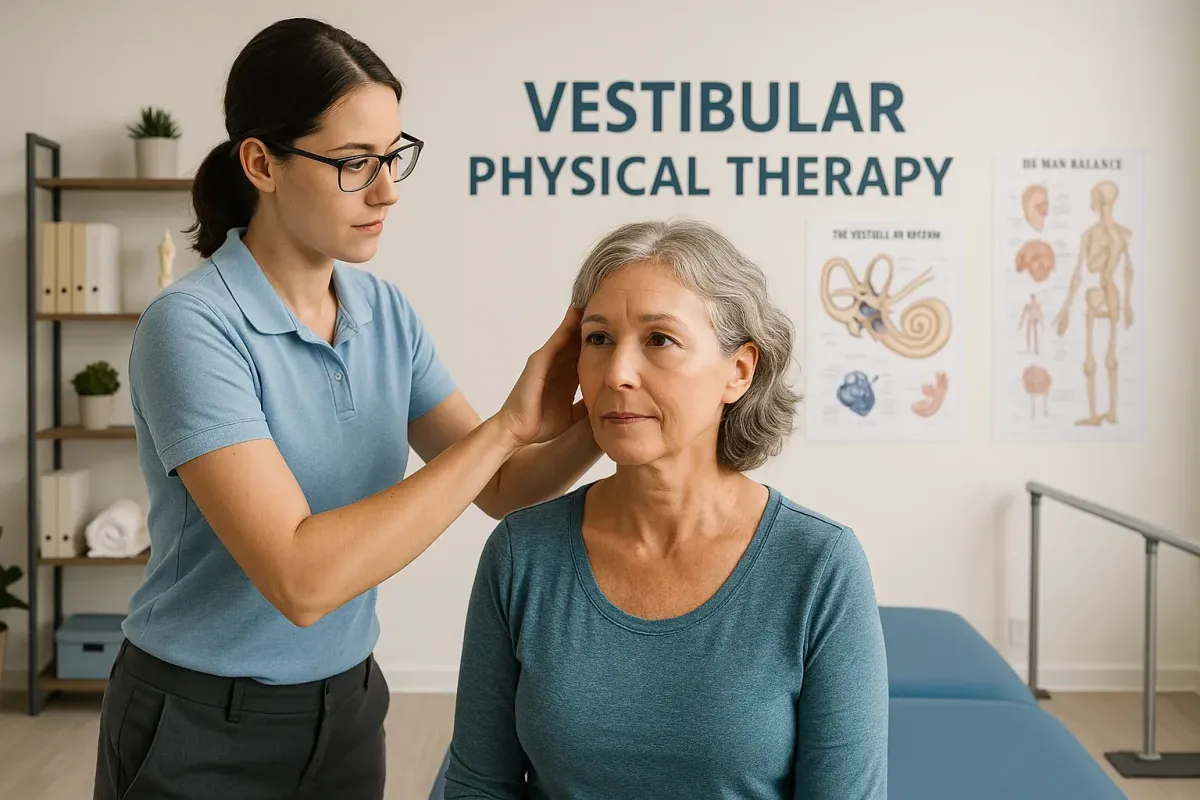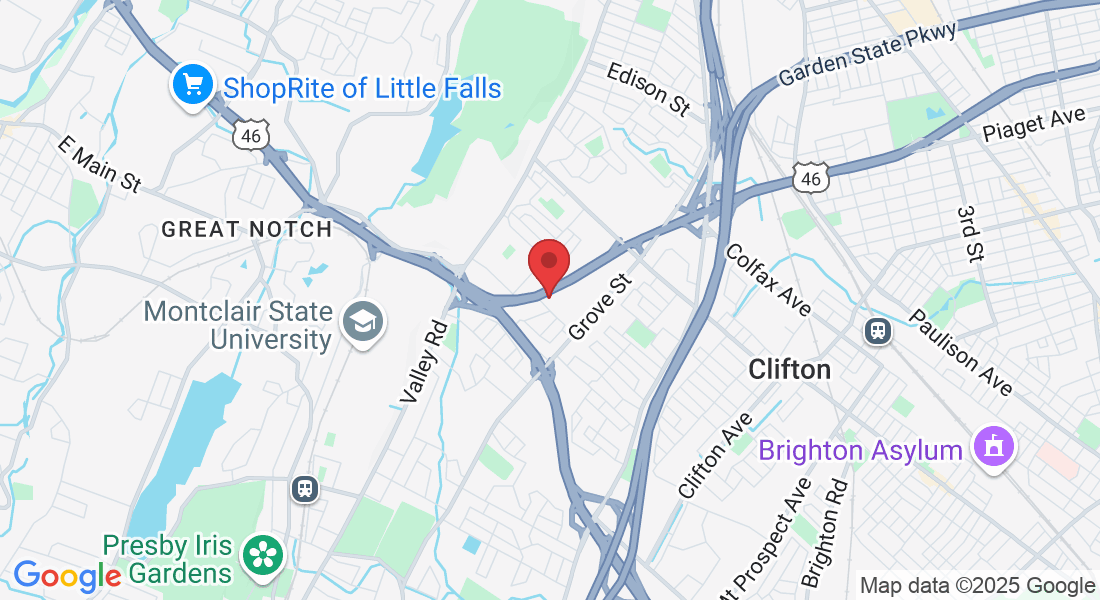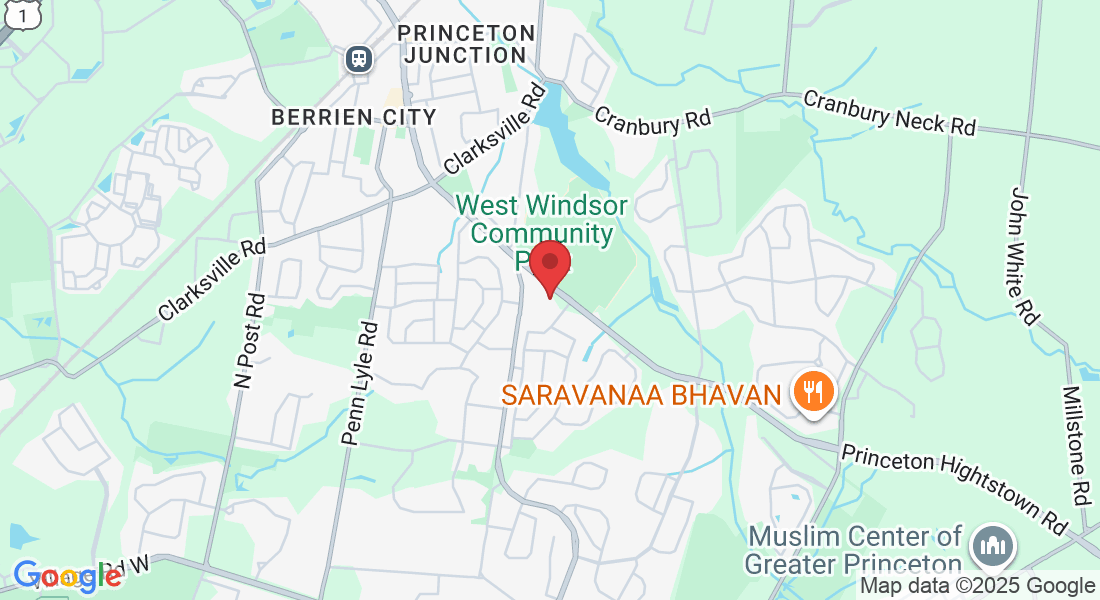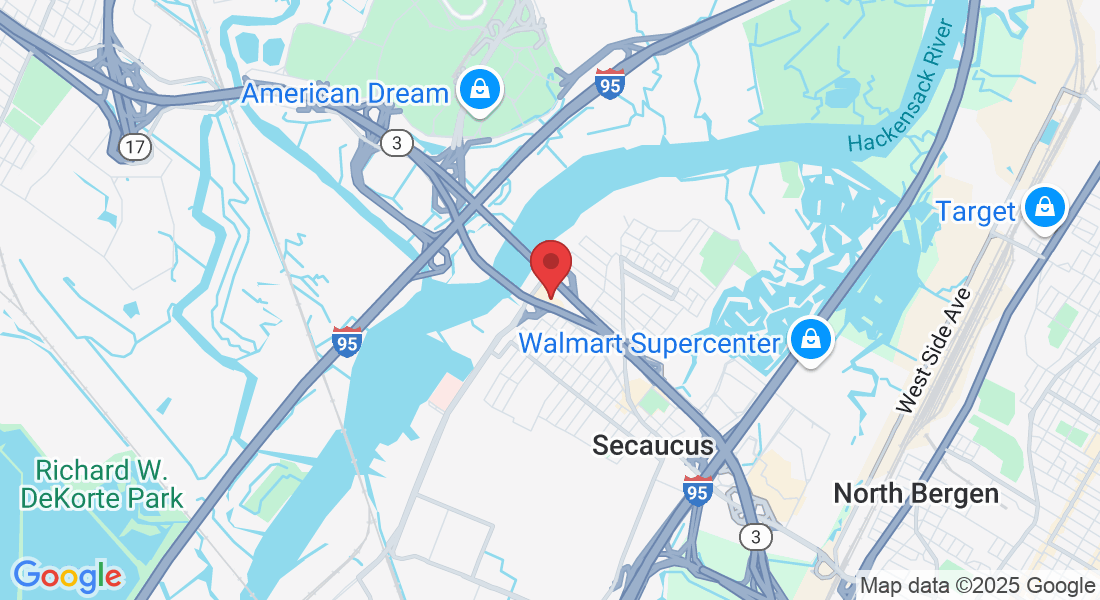Visit our Location
250 Main Street, New York
Give us a Call
+ (12) 123 - 556 - 7890
Send us a Message
Opening Hours
Mon - Friday: 8AM - 5PM
Vestibular Physical Therapy
Specialized Care for Dizziness, Vertigo, and Balance Disorders

Feeling dizzy, off-balance, or lightheaded? You're not alone—and you don't have to live with it. At New Jersey Rehab Experts, our Vestibular Rehabilitation Therapy (VRT) is designed to help you regain control, stability, and confidence in your everyday movements. Our specialized vestibular therapists use advanced assessment techniques to identify the specific cause of your symptoms, whether it's BPPV (Benign Paroxysmal Positional Vertigo), vestibular neuritis, post-concussion syndrome, or other balance disorders. Following a comprehensive evaluation, we develop a personalized treatment plan that may include canalith repositioning maneuvers, gaze stabilization exercises, balance training, and habituation exercises. By addressing the underlying cause of your symptoms rather than just managing them, we help you achieve lasting relief and improved function.
Most patients experience significant improvement within 6-8 sessions, with many achieving complete resolution of their symptoms. Don't let dizziness or balance problems limit your life—regain your stability and confidence with our evidence-based vestibular rehabilitation.
Vestibular Conditions We Treat
Our vestibular physical therapy team specializes in treating a wide range of balance and dizziness disorders:
Benign Paroxysmal Positional Vertigo
The most common type of vertigo caused by displaced crystals in the inner ear. We use specialized repositioning maneuvers like the Epley maneuver to move these crystals back to their proper location and eliminate symptoms.
Vestibular Neuritis & Labyrinthitis
Inflammation of the inner ear or vestibular nerve, often caused by viral infections. Our treatment includes habituation exercises, balance training, and strategies to manage symptoms during recovery.
Persistent Postural-Perceptual Dizziness
A chronic dizziness condition often triggered after another vestibular problem resolves. We provide desensitization exercises, habituation training, and strategies to manage visual triggers.
Post-Concussion Dizziness
Balance problems and dizziness following head trauma or concussion. Our comprehensive approach addresses vestibular, visual, and cervical components with specialized exercises and return-to-activity protocols.
Vestibular Migraine
Migraine symptoms that manifest as dizziness and vertigo rather than headache. We provide vestibular rehabilitation alongside trigger identification and management strategies to reduce episode frequency.
Cervicogenic Dizziness
Dizziness originating from neck issues rather than inner ear dysfunction. Our treatment combines manual therapy for the cervical spine with specialized exercises to improve neck proprioception and balance.
Age-Related Balance Problems
Multifactorial balance issues affecting older adults. We provide comprehensive assessment and interventions for vestibular, sensory, strength, and coordination deficits to reduce fall risk and improve confidence.
Unilateral Vestibular Hypofunction
Reduced function of one inner ear, causing imbalance and dizziness. Our treatment focuses on vestibular adaptation exercises to help the brain compensate for the asymmetry and restore normal balance function.
Benefits of Vestibular Physical Therapy
Our specialized vestibular rehabilitation provides numerous advantages for patients suffering from dizziness and balance disorders.
Reduced Dizziness & Vertigo
Experience significant reduction or complete resolution of vertigo episodes and dizziness symptoms through specialized repositioning techniques and habituation exercises.
Improved Balance & Stability
Regain confidence in movement with enhanced balance control through specialized balance training that challenges and strengthens your body's balance systems.
Decreased Fall Risk
Significantly reduce your chances of falling through improved balance reactions, sensory integration training, and environmental awareness strategies.
Faster Vestibular Compensation
Accelerate your brain's natural compensation process after vestibular injury through targeted adaptation exercises that promote neural plasticity.
Reduced Visual and Motion Sensitivity
Overcome sensitivity to busy visual environments and motion with specialized habituation exercises that gradually desensitize your vestibular system.
Increased Confidence in Daily Activities
Regain the ability to participate confidently in daily activities, social engagements, and work responsibilities without fear of dizziness or falling.
Medication Reduction
Decrease reliance on medications for dizziness and vertigo through natural, movement-based therapies that address the root cause of your symptoms.
Long-Term Management Strategies
Learn effective self-management techniques to prevent symptom recurrence and maintain vestibular health for the long term after completing formal therapy.
Frequently Asked Questions:
Q1: What types of conditions can vestibular physical therapy help with?
Vestibular PT effectively treats many dizziness and balance disorders, including BPPV (the most common cause of vertigo), vestibular neuritis/labyrinthitis, persistent postural-perceptual dizziness (PPPD), post-concussion dizziness, Meniere's disease, vestibular migraine, and age-related balance problems. It can also help with undiagnosed dizziness when medical tests are inconclusive but symptoms persist.
Q2: How quickly will I notice improvements with vestibular therapy?
Most patients begin experiencing some improvement within 2-3 sessions. For conditions like BPPV, resolution can occur after just 1-2 treatments. More complex or chronic vestibular disorders typically require 6-12 sessions over several weeks, with progressive improvement throughout. Recovery timelines vary based on diagnosis, symptom severity, and how consistently you perform your home exercise program.
Q3: What should I expect during my first vestibular physical therapy appointment?
Your initial session will include a comprehensive assessment of your balance, eye movements, positional testing, gait analysis, and functional mobility. We'll discuss your symptoms in detail, including triggers and impact on daily activities. You may experience some dizziness during certain tests, but this helps us pinpoint the problem. After the evaluation, we'll explain our findings and develop a personalized treatment plan.
Q4: Is it normal to feel worse after vestibular therapy sessions?
Some temporary increase in symptoms after initial sessions is normal and actually indicates we're effectively challenging your vestibular system. This typically subsides within 24 hours as your brain begins adapting. We carefully dose your exercises to ensure any symptom provocation is therapeutic rather than overwhelming. As treatment progresses, your tolerance improves and symptom exacerbations become milder and shorter.
Q5: How is BPPV treated in vestibular physical therapy?
BPPV (Benign Paroxysmal Positional Vertigo) is treated with specialized canalith repositioning maneuvers like the Epley, Semont, or BBQ roll techniques. These precise, sequence-specific head movements guide displaced calcium crystals back to their proper location in the inner ear. Success rates exceed 90% within 1-3 treatments. We'll also teach you home exercises and prevention strategies to manage potential recurrences.
Q6: Can I drive to and from my vestibular therapy appointments?
This depends on your symptoms and their severity. Many patients with mild to moderate symptoms can drive safely to appointments. However, after some sessions, particularly early in treatment, you might experience temporary increases in dizziness that could affect driving. We recommend arranging alternative transportation for your first 1-2 sessions until we can better assess how you respond to treatment.
Q7: Will my insurance cover vestibular physical therapy?
Most health insurance plans cover vestibular rehabilitation when medically necessary. Coverage typically includes evaluation and treatment for diagnosed vestibular disorders or symptoms affecting balance and function. Our office staff can verify your specific benefits before your first appointment and explain any potential out-of-pocket expenses. Some specialized testing may have different coverage than regular therapy sessions.
Q8: How can I prepare for my vestibular physical therapy evaluation?
Bring a list of your medications, any relevant medical records or imaging reports, a detailed description of your symptoms (including triggers and patterns), and a log of episodes if possible. Wear comfortable clothing that allows movement. Some tests may provoke your symptoms temporarily, so consider arranging transportation for your first visit. Finally, try to come well-rested, as fatigue can exacerbate vestibular symptoms.RetryClaude can make mistakes. Please double-check responses.
Meet Our Team

Sunny Thakkar PT, MS ( Exercise Physiologist)
Physical Therapist

Ashish Sinha, PT, DPT
Physical Therapist

Dr. Rohit Farzala PT, DPT
Physical Therapist
No matter whether your condition was caused by a sport, work accident or otherwise, we welcome the chance to serve you.
Client Testimonials




